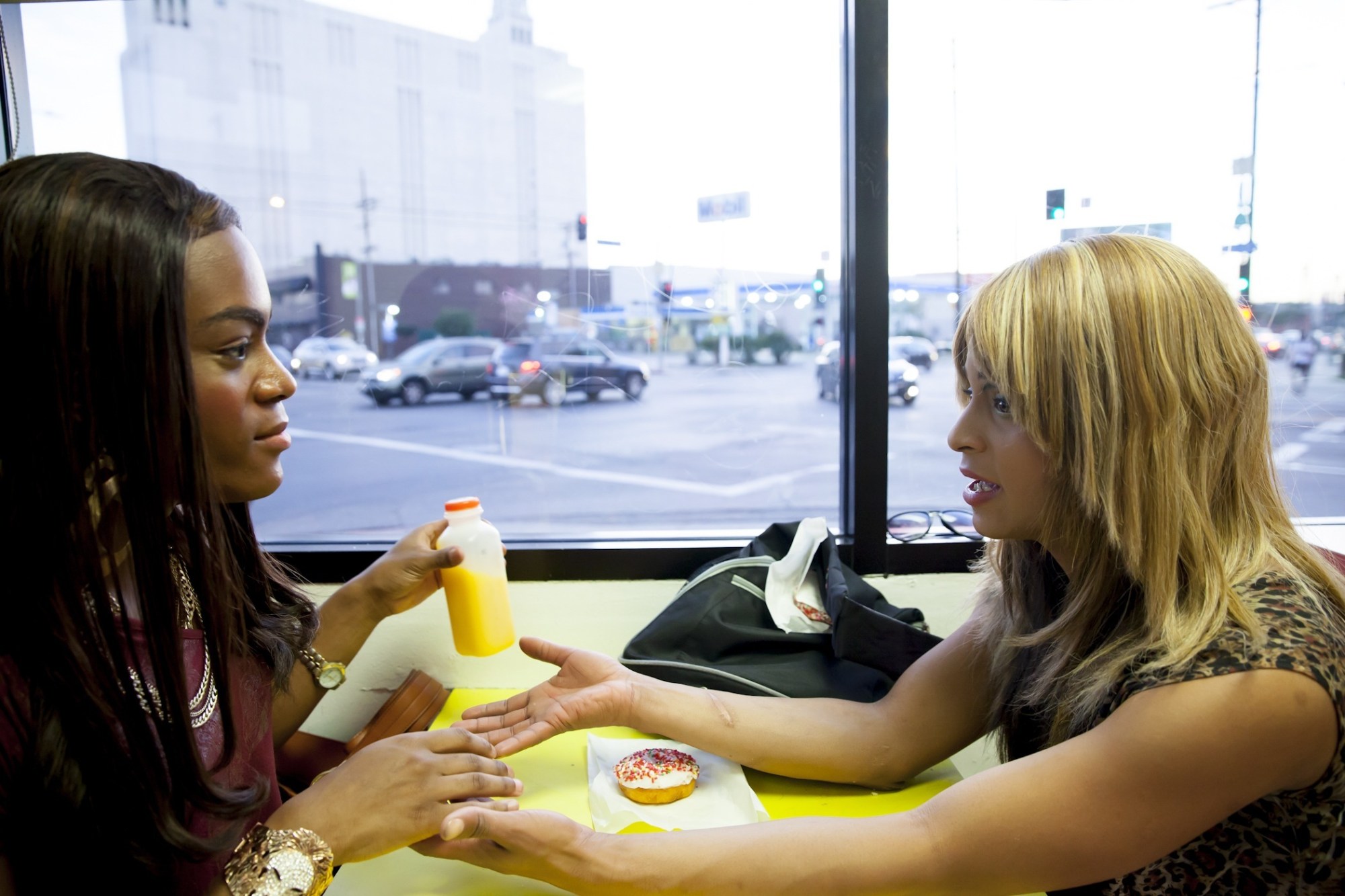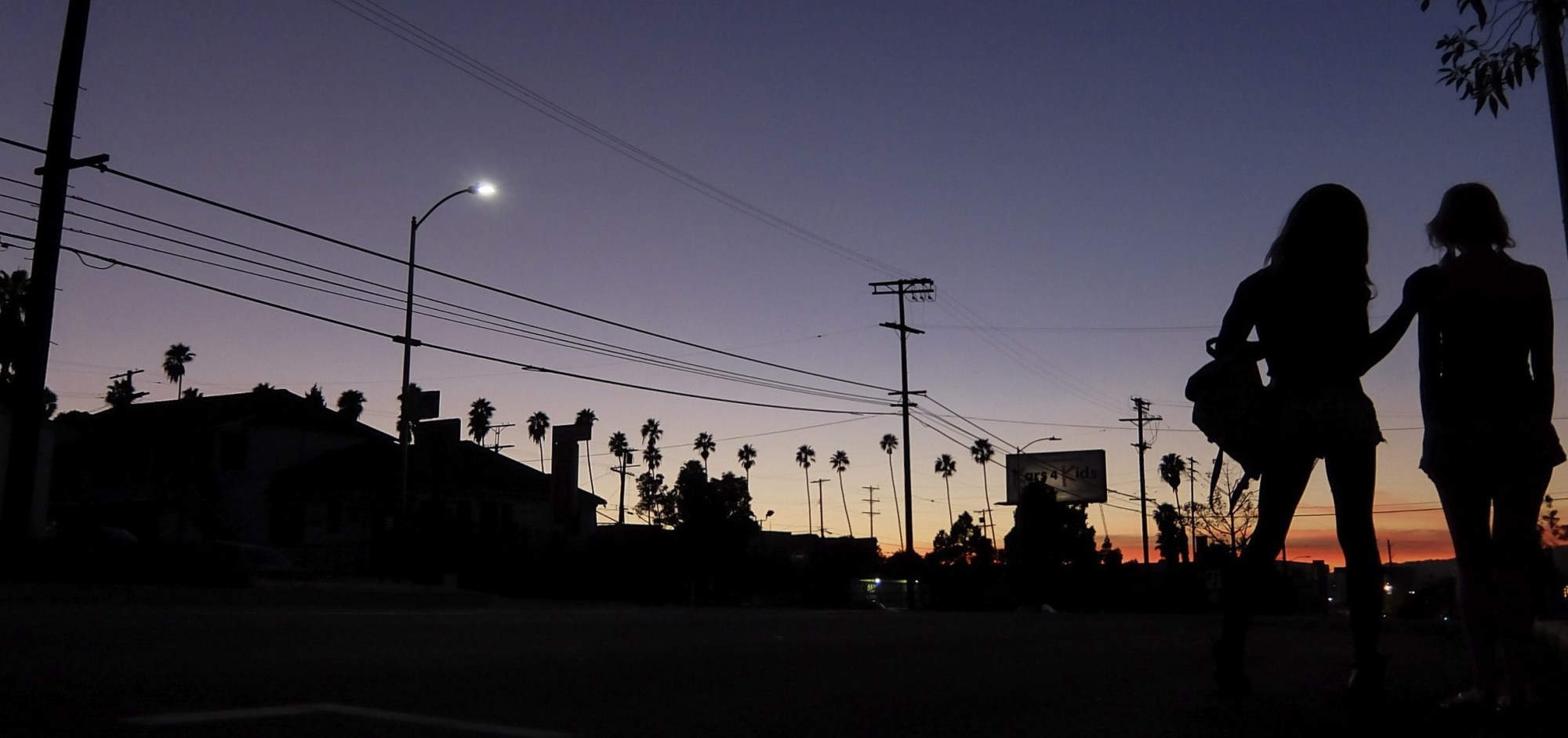Sean Baker has directed highly acclaimed films about Flatiron District counterfeiters and indebted Chinese delivery men. But his most recent work, Tangerine, is a different story altogether: the film follows the fictional journey of Alexandra and Sin-Dee–two African-American transgender sex workers–as they seek revenge on Sin Dee’s boyfriend after discovering that he’s cheating on her on Christmas Eve. Although this might sound like contentious territory for a white, cisgender male director to tread, Baker’s deeply collaborative approach with the women of LA’s unofficial red light district resulted in a darkly humorous hit that’s garnered overwhelming praise from both film critics and members of the LGBT community. Released in limited theaters just over two weeks ago, Tangerine has now started screening in select theaters around the world. We caught up with Sean as he presented the film in Colombia to find out more.
What was your research process like?
It was approximately eight months of spending time in that area and with the women from that area. Chris Bergoch [the film’s co-writer] and I being two cisgender white males knew that we had to find a collaborator. We didn’t want to walk in there imposing any script or plot, so we went in with nothing. We approached people, we introduced ourselves, and we told them our intentions with the project. But it wasn’t until we found Mya Taylor at the Los Angeles LGBT Center that things started rolling. She was our passport.
How did Mya help shape the story?
We would meet regularly at the Jack in the Box and she would tell us stories and anecdotes, stuff that she had witnessed herself or knew from friends of hers from the area. One day, Mya brought Kiki to the table. When I saw the two of them together, I knew at it had to be a friendship story. We were still in need of an A plot, but a couple days later, Kiki had an idea. She told us about this mission to find the “fish,” [slang for a cisgender woman] and I was like, “Can you define that?” When we realized what she was talking about, our jaws dropped. The story was something that was being contemplated by one of the girls when she found out her boyfriend was cheating on her, so it actually never played itself out in real life — the film isn’t based on an actual event, but the actual thought of an event.
What role does humor play in the film?
Comedy has always been part of what I do, but my previous films have been more dramedies and I didn’t really imagine the use of humor would be to this degree with this film. Early on in the process, I gave my films to both Mya and Kiki and they both identified with them and understood my sensibility. But Mya said, ‘I’ll make this film with you if you promise me two things: one, I want you to go for it in terms of the realism. You need to show how hard it is for the women out here and I don’t want you to shy away from things. But I also want this film to be hilarious because I want this film to be entertainment for the women out here as well.’ It took me several days to think about it, worrying about this balancing act, and then I realized what she was asking me was probably saving me in many ways.

You’ve said in the past that the film was shot on iPhones for budgetary purposes, but it seems so perfect — making a film in which the police play a contentious role when iPhones have captured many of these interactions IRL…
Some critics have expressed why they felt the iPhone was the perfect device to shoot this film on for many reasons. The point you just brought up, the fact that this is a device that people without means can have to some degree — and the women in this film are people without means — using this device on sort of street level. I hate to self analyze it, I like other people talking about it, but I do think the iPhone helped us achieve something we otherwise couldn’t have with anything else. It really did stem from a place of budgetary constraint, but we were just very open about letting it reveal any benefits it might have and certainly a lot of benefits were revealed.
This film was shot a year and a half ago, but its release is obviously occurring at a huge cultural moment for transgender rights and visibility. But trans people of color in particular are still face myriad inequality and violence. What were your observations during and following filming?
I witnessed firsthand discrimination, from the restaurants that we were trying to eat in while we were shooting suddenly changing their attitude towards us once we brought in Mya and Kiki. I witnessed discrimination in post production when I was trying to help Mya find a job before the film’s release. This is something that these women have to deal with all the time, and I witnessed only a small part of it. The awareness and the visibility is wonderful: all the stuff that’s happened with Laverne Cox, Caitlyn Jenner, and President Obama, it’s all amazing. But the problem is that the murder rate has increased. Last year, there were 12 reported and investigated — that’s only reported, there are many that go undocumented — this year, there’s already been 10. All this awareness has not transitioned to acceptance yet, and those are the steps that have to be taken.
This film just being one of many stories that are being told that will hopefully work towards that change. And I think the change has to come about from people who never thought they’d have any sort of connection to people from the world that I was focusing on– trans women of color who have had to resort to sex work. My hope is that audiences in suburbia USA will connect with the characters of Alexandra and Sin-Dee, and that they then get on their computer and Google and start to learn more. That awareness will hopefully lead to acceptance.
Credits
Text Emily Manning
All images courtesy Magnolia Pictures
